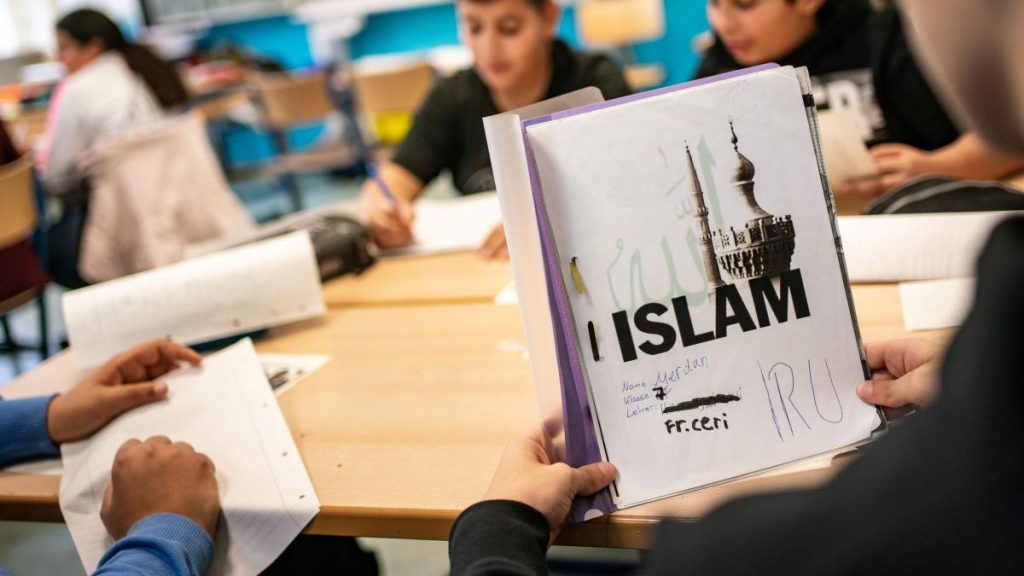A recent study conducted among aspiring Islamic religious teachers in Germany has revealed concerning attitudes towards Western societies, Jews, and Israel. The study, led by researchers from the University of Münster, surveyed 252 students of Islamic religious education and theology, representing about eleven percent of all students in these fields across eleven universities. The results, published in the “British Journal of Religious Education,” showed that a significant portion of future Islamic teachers hold Islamist, anti-Western, and antisemitic beliefs.
According to the study, nearly 60 percent of the students agreed that “the West is responsible for the poor conditions in many Islamic countries.” Additionally, about 47 percent believed that Israel has no right to exist, and over a third agreed that Jews have too much power and influence in the world. Furthermore, approximately a quarter of the respondents were classified as holding a fundamentalist worldview, with beliefs such as the superiority of Islam in solving modern issues and the necessity of returning to a societal order similar to the time of the Prophet Mohammed.
The study also highlighted gender-related attitudes among the students, with over half advocating for avoiding handshakes between men and women and a fifth supporting traditional gender roles with men working and women taking care of the household. However, nearly all participants rejected the idea that women could be subjected to physical violence. Interestingly, women in the survey displayed higher levels of support for gender equality and lower levels of Islamist beliefs compared to their male counterparts.
In terms of organizational affiliations, over two-thirds of the students felt represented by the German-Turkish mosque association DITIB, while nearly 59 percent identified with the Islamic Community Millî Görüş. The researchers noted that these conservative Islamic associations exert significant influence on the students’ education and future careers. Moreover, the study observed a slight inclination towards rejecting reform-oriented perspectives, characterized by symbolical interpretations of the Quran, contextualizing Islam in Europe, promoting equal relationships with non-Muslims and LGBTQ+ individuals, and critically reflecting on the potential for violence within Islam.
The survey also revealed disparities in student participation based on university location and demographic characteristics. For instance, the majority of respondents studied in Münster, while other campuses, such as Hamburg and Paderborn, had significantly lower representation. Additionally, most respondents were female, reflecting the gender distribution in these programs, and the vast majority were born in Germany with immigrant backgrounds, particularly from Turkish and Moroccan descent.
Overall, the study sheds light on the ideological orientations of future Islamic educators in Germany, highlighting the need for greater awareness and dialogue around issues of extremism, antisemitism, and gender equality within educational contexts. The findings underscore the importance of promoting inclusive and tolerant values among religious educators to foster harmonious coexistence in multicultural societies.















